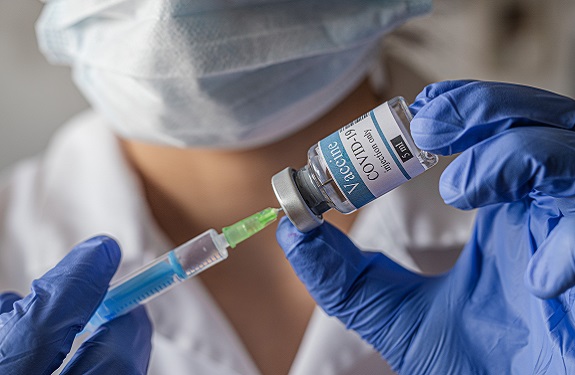OPINION: World leaders months away from releasing unproven vaccines

The world has been racing for months now to find a cure for COVID-19. Some of the world’s superpowers announced that they are in the final stages of developing a vaccine and could begin distribution by the end of this year to early 2021. What usually takes up to a decade to complete is clearly being rushed and could potentially put these countries’ citizens at risk.
Since vaccinations normally take upward of 10-15 years to produce, according to the National Center for Biotechnology Information, it’s obvious that the world is acting rashly to achieve fast results. U.S. citizens are already apprehensive about taking it when it does come out.
In an Aug. 28-31 Suffolk University poll, almost two-thirds of Americans said they won’t get the vaccine when it first comes out. The most willing to take the risk were those over the age of 75, the most at-risk group.
With the Emergency Use Authorization in effect, the Food and Drug Administration (FDA) requires “that the known and potential benefits of the [vaccine] outweigh the known and potential risks.” The FDA said the vaccine only needs to have a 50 percent effective rate to be approved.
These loose regulations will produce a vaccine with the same probability as a coin flip. It could have devastating consequences for anyone who receives it, especially the senior population.
President Donald Trump spoke at a White House press conference on Labor Day about Operation Warp Speed – his plan to have 300 million vaccination doses in stock by January. Trump then said that vaccinations could even be ready by October.
With this dubious claim, he clearly is using this as a way to gain points for re-election by claiming to have a vaccine ready by Election Day, or Nov. 3.
“What I said is by the end of the year, but I think it could even be sooner than that,” he said. “It could be during the month of October, actually could be before November.”
Dr. Anthony Fauci, the director of the National Institute of Allergy and Infectious Diseases, believes otherwise. He said on Sept. 9 that he projects a vaccine won’t be ready until next year.
“The more likely scenario is that we will know by the end of this calendar year and hopefully we’ll be able to start vaccinations in earnest as we begin early 2021,” said Fauci.
Russia was the first country to develop a vaccine last month. President Vladimir Putin announced the approval of a vaccine on Aug. 11 called Sputnik V, even though specialists hadn’t started phase three, which the Centers for Disease Control and Prevention said is when thousands of people can receive the vaccine to test for safety. With one billion doses requested by other countries, it’s a waiting game to see if there are any negative drawbacks.
In the UK, Oxford University developed AstraZeneca’s Adenovirus Vector vaccine. A volunteer undergoing one of the trials of the vaccine developed myelitis, which is inflammation of the spinal cord that can be triggered by viral infections. It is unclear if this was caused by the vaccine or if the timing was coincidental, but it temporarily halted the development in the U.S., according to biotechnology news outlet FierceBiotech.
The U.S. has already ordered 300 million doses of the Adenovirus Vector vaccine in hopes that it will be effective. The proper testing is in place here, yet there are already anticipated problems, other than the rushed nature of the production phases.
The fact that countries are working so hard to develop a vaccine is commendable, but it must be done diligently as lives are potentially at risk. Leaders need to focus on developing a more selective and safer process if they want to properly rid the world of COVID-19.






